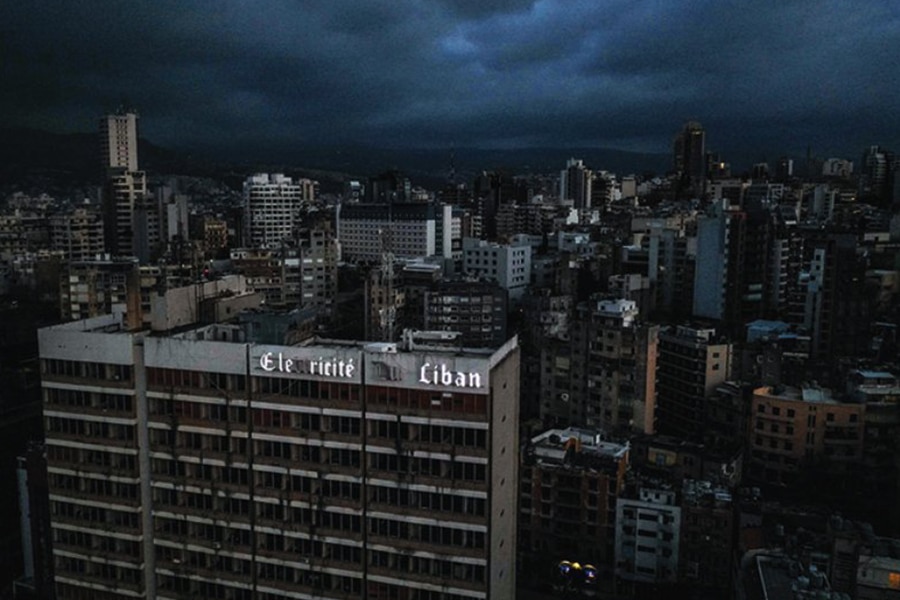
On August 4, 2020, thousands of tonnes of improperly stored ammonium nitrate ignited in the Port of Beirut, killing 218 people and severely injuring 7000 others. But over a year since the explosion and in the wake of the coronavirus pandemic, Lebanon is still reeling.
A devastating economic crisis grips the country and it was only on Saturday, October 9 that it came to a head, when the whole country was thrusted into darkness with a 24-hour blackout. But what caused the blackout? And what does this mean for Lebanese citizens?
Below, we've outlined what you need to know about the 24-hour power outage in Lebanon.
What caused the 24-hour blackout in Lebanon?
On Saturday, October 9 all across Lebanon, citizens were plunged into darkness. For over 24 hours, the state-run electrical grid collapsed after the countries' two largest power stations, Deir Ammar and Zahrani, shut down due to a fuel shortage.
Although limited power was restored on Sunday, albeit temporarily, as the Lebanese armed-forced delivered a six million litre fuel donation, the situation is still fraught. National electricity company, Electricité du Liban, has been an inconsistent source of electricity for Lebanese people, with as little as one or two hours of electricity daily. This means many people are turning to private generators, although this option is only available to those who can afford them. Which, considering the country is experiencing an economic crisis that the World Bank has identified as "in the top 10, possibly top three, most severe crises episodes since the mid-nineteenth century" and that tens of thousands of citizens have lost their jobs, this is not a viable avenue. Also, as fuel becomes scarce, it becomes almost impossible to run these private generators.
Lebanon now has zero state power meaning the entire country is running on private generators. They are prohibitively expensive: my last month’s bill was 3.75 million lira which is $2500 on official rate& about $250 on black market. How is the airport running?What about hospitals? https://t.co/eFzcVhxH1I
— Bel Trew (@Beltrew) October 9, 2021
For many citizens, regular periods without power means they are living in darkness, unable to power fans or heaters and fearful of leaving their homes due to the ever-present threat of coronavirus. As it stands, just over a tenth of the population is vaccinated against Covid-19. Meanwhile, constant blackouts see that hospitals already struggling with a shortage of medical supplies and staff, plus coronavirus, cannot go forward with vital operations and procedures. In some cases, hospital staff are urging patients to find their own medication, and so many citizens are turning to family members overseas for support and supplies.
What role does hyper-inflation play in the blackout in Lebanon?
Why is fuel and groceries so expensive? Since 2019, the Lebanese Lira has plummeted, losing 90% of its value, while its yearly inflation in 2020 was 84.9 percent. Not only this, but as of June, the price of goods has nearly quadrupled in the last two years.
This enormous inflation means everyday goods like medicine and basic food are exorbitantly priced, especially fuel. And so, many citizens are struggling to buy groceries, cutting meat from their diets and oftentimes going hungry. What savings families and individuals had have been wiped and people who could survive - thrive off of their normal salary are no longer able to do so.
Most critically, the current economic crisis could lead to a larger political predicament. The Iran-backed militant group Hezbollah (which makes up part of the Lebanese government) delivered fuel into the country in September via Syria, defying US sanctions. Critics of Hezbollah are saying the group is using the fuel shortage to expand its influence in the region. Iran and Hezbollah have indicated that they will continue to bring fuel into the country despite sanctions.
Images: Twitter



